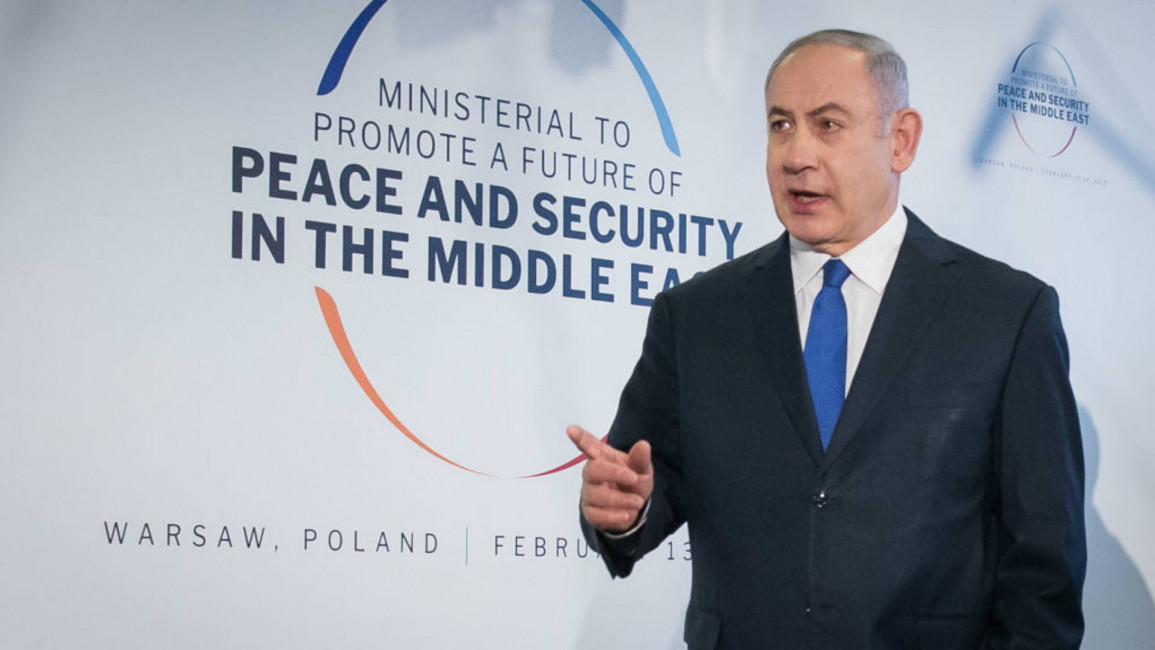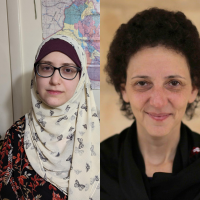
Normalising Israel in Warsaw
Israel, however, continues to score points on the premise of exhorting the marginalisation of Palestine, by regurgitating the threat puportedly posed by Iran.
Palestinian factions are united in viewing the summit as a betrayal of the Palestinian cause. While Hamas was adamant in deeming participants 'traitors', the Palestinian Authority reiterated its refusal to participate, and resorted once again, to seeking a reversal of previous US decisions which have adversely affected prospects for Palestinian independence, notably the recognition of Jerusalem as Israel's capital and the withdrawal of financial aid.
It's a useless pursuit. Israel and the US have forged ahead with their plans to eliminate Palestinians diplomatically and, despite their initial furore over Jerusalem, Arab leaders have proved indifferent to the political implications of the decision for Palestinians.
Conversely, the Gulf states in particular have aligned their interests with Israel's, vindicating Israeli prime minister Benjamin Netanyahu's statements that normalising ties with Arab states will no longer depend on finding a solution for Palestine.
For now, Iran provides a rallying point as evidenced in comments following the summit, with Arab foreign ministers agreeing that "Israel had a right to defend itself against Iranian aggression".
This defined threat masquerading as a right, will, with time, be dissociated from its current context, and acquiesce to the tone struck internationally that stipulates Israel's "right to defend itself" without specifications.
 |
Palestinian factions are united in viewing the summit as a betrayal of the Palestinian cause |  |
Such an admission would remove any traces of the remaining veneer allowing Arab leaders to invoke Palestine when dictated by international outrage.
Additionally, the rift between the US and the EU over the Iran nuclear deal of 2015 provides Israel with the perfect cover to shift focus away from Palestine.
Having Arab countries in agreement with Israel over Iran removes the element of isolation that Netanyahu attempted to portray as a threat.
The bonus, for Israel, is adding yet another political issue in which the international community has invested considerable time and effort, which has the potential to relegate Palestinians to the sidelines permanently.
Twitter Post
|
Now that the allegiances between Arab leaders and Israel are being flaunted unabashedly, it is important to look at two different strands of normalisation which betrayed Palestinian liberation, and to which the PA contributed: The UN Partition Plan of 1947, and the 2002 Arab Peace Initiative.
Read more: Gulf officials dismiss Palestinian cause, attack Iran in video leaked by Israel's Netanyahu
The UN Partition Plan of 1947 is one of the first indirect references that the international community was looking towards a two-state compromise. Diplomatic engagement after the Oslo Accords stipulated this framework as the "only solution" and the PA has acted as the international community's mouthpiece on this imposition, rather than exploring alternatives through Palestinian demands.
Emphasising the two-state framework swiftly led to its normalisation due to a number of factors. Palestinian resistance factions were ostracised from diplomatic engagement, creating a situation in which the PA was considered - at an international level - the purported representation of Palestinians.
As a result, the Palestinian anti-colonial struggle was framed against Israel's alleged security concerns.
Countries which have first-hand experience of anti-colonial struggle also backed the plan, despite the ongoing depletion of Palestinian territory. It must be noted that rather than providing prospects for a Palestinian state, the two-state paradigm has reinforced colonial presence and expansion by failing to object to Israel's existence.
This legitimisation of Israel as a colonial state by the international community was by default absorbed by the PA, resulting in a situation where normalising discourse regarding the two-state hypothesis implied tacit agreement regarding Israel's colonisation of Palestine.
 |
The rift between the US and the EU over the Iran nuclear deal of 2015 provides Israel with the perfect cover to shift focus away from Palestine |  |
The 2002 Arab Peace Initiative followed a similar framework, regionally. Endorsed by the Arab League, it calls for the two-state compromise and, in return for its implementation Arab states would "Establish normal relations with Israel in the context of this comprehensive peace".
In Warsaw, US Envoy Jared Kusher dismissed the initiative, stating that the Trump administration's "Deal of the century" would not conform to previous frameworks.
With Arab leaders clearly moving away from their own previous decision-making, normalising ties with Israel is now no longer incumbent upon Israel conforming to internationally-imposed norms.
Twitter Post
|
Indeed, Palestine has been completely dissociated from the process and normalising ties with Israel has eclipsed the previous normalisation of the two-state compromise.
If previously there was any contention regarding Israel's normalisation as a result of endorsing the two-state compromise, the Warsaw summit has eliminated all doubt.
The dismissal of the Palestinian cause in favour of the Israeli narrative about Iran is likely the political vantage point that Arab leaders are currently pursuing in order to salvage their own fragile power in the region.
Yet the PA cannot be absolved of its own role in this deterioration of support for Palestine.
It has repeatedly attempted to justify taking the Palestinian cause away from Palestinians themselves, placing it on an international platform without advocating for their right to determine their own political narrative.
In keeping with international demands, the PA relentlessly pursued diplomacy to secure its position at the expense of Palestine and the Palestinians. The two-state framework - contentious from the start as it validates Israel's presence in historic Palestine - is still endorsed by the PA as the only avenue for securing a semblance of a state.
The question is, if the PA has proved to be incapable of safeguarding Palestinian rights, how can it expect external actors to honour Palestine's right to liberation?
We are witnessing here an extension of the historical squandering of territory for political gain.
Arab leaders have played an opportunistic game and not in isolation.
While the summit has exposed the treachery of allowing Palestine to become a pseudo-cause for other Arab states, the PA should also be held accountable for facilitating the ongoing depiction of Palestine as an international concern, to the point that furore over the current normalisation trend will soon follow the same route as that of the two-state paradigm.
Follow her on Twitter: @walzerscent
Opinions expressed in this article remain those of the author and do not necessarily represent those of The New Arab, its editorial board or staff.




